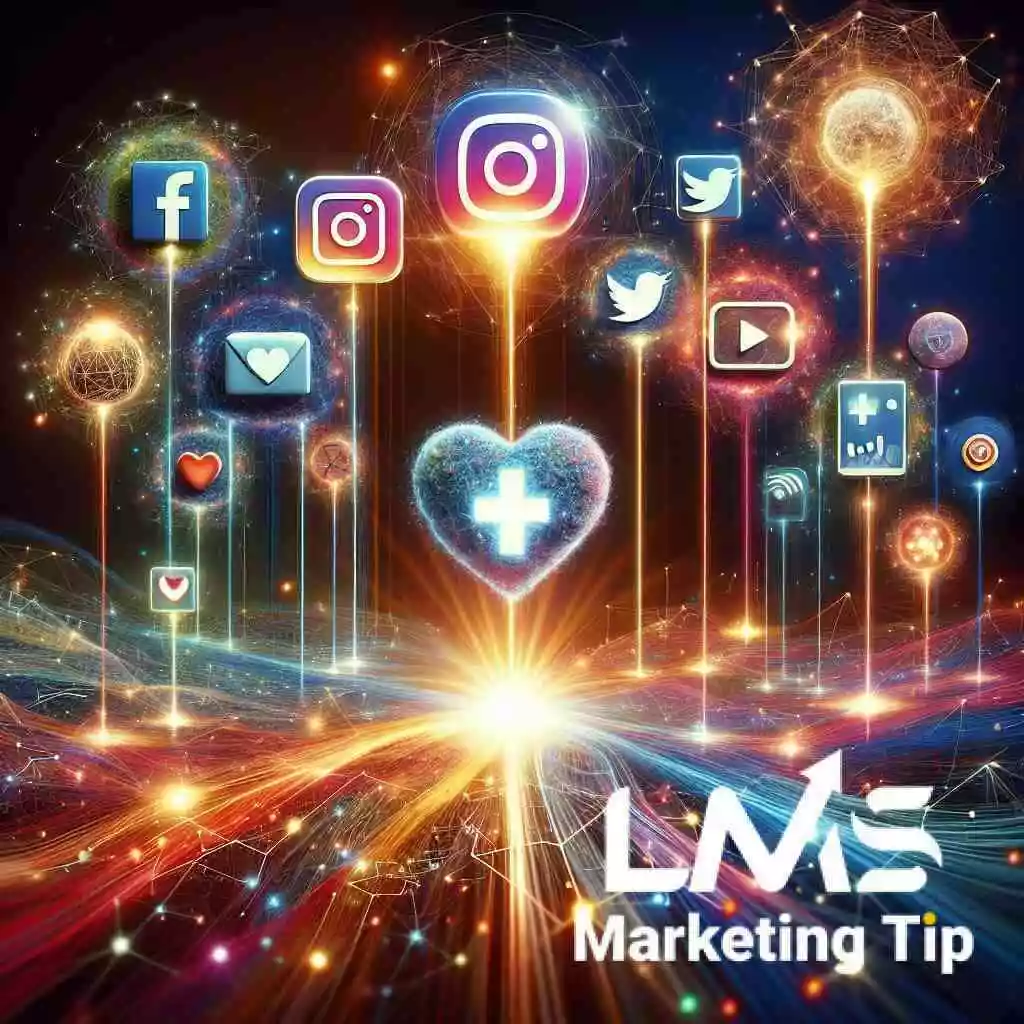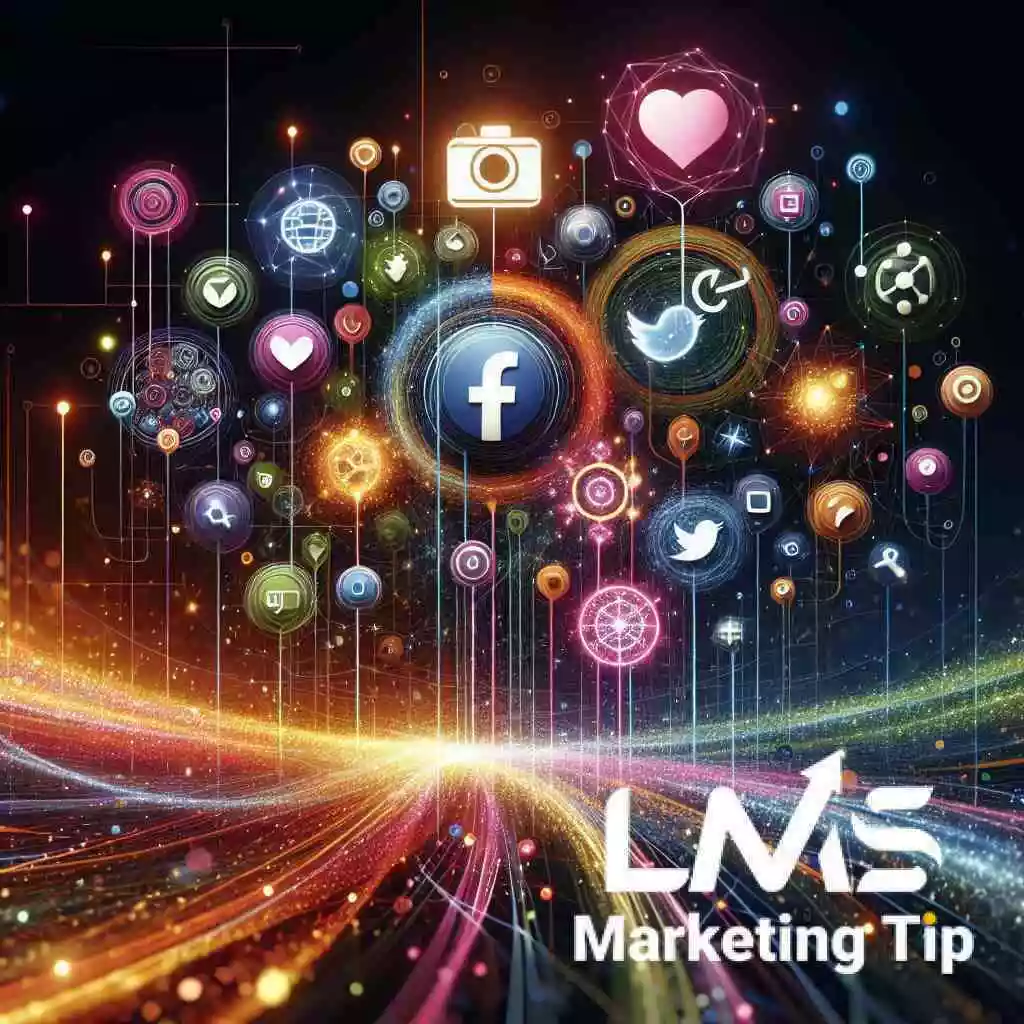
Introduction to Healthcare Marketing on Social Media
The Importance of Social Media in Healthcare Marketing
In the digital age, social media has emerged as a crucial platform for healthcare providers to engage with their patients and broader audiences. The power of social media in healthcare marketing lies in its ability to disseminate information quickly, foster community engagement, and improve brand visibility. For healthcare organizations, utilizing social media effectively can lead to enhanced patient care, education, and seamless communication with the target audience. With millions of users actively seeking health-related information on these platforms, healthcare providers have a unique opportunity to reach out and make a significant impact. Initiating conversations, sharing advancements in medical care, and providing valuable health tips can position healthcare brands as authoritative and trustworthy sources in their field.
Understanding Your Target Audience in the Healthcare Sector
Identifying and understanding the target audience is pivotal in tailoring healthcare marketing strategies that resonate and engage effectively. The healthcare sector encompasses a wide range of demographics, including patients with varied health concerns, caregivers looking for support, and individuals seeking preventive care advice. Healthcare marketers need to dive deep into audience segmentation, analyzing their preferences, the social media platforms they frequent, and the type of content they consume. This nuanced understanding enables healthcare providers to create targeted messaging that addresses specific needs, queries, and concerns, fostering a more personalized and impactful engagement strategy.
Aligning Healthcare Branding with Social Media Strategies
Effective healthcare branding on social media is not just about consistent logos or color schemes; it’s about creating a cohesive narrative that reflects the core values and mission of the healthcare provider. Integrating these elements into a social media strategy involves crafting messages that speak directly to the target audience’s aspirations, challenges, and needs while adhering to privacy laws and ethical standards. This strategic alignment ensures that every piece of content, whether it’s an educational video, an awareness campaign, or a patient testimonial, reinforces the healthcare brand’s identity and value proposition. By doing so, healthcare organizations can build a trustworthy reputation, engage meaningfully with their audience, and drive patient engagement through thoughtful, relevant content.
Top Social Media Platforms for Healthcare Marketing
Social media has revolutionized the way healthcare providers connect with their audience. Each platform offers unique benefits for engaging with different demographics, disseminating information, and marketing healthcare services. Let’s dive into the top social media platforms for healthcare marketing.
Facebook: Connecting with Patients and Providing Health Tips
Facebook remains a vital platform for healthcare marketers due to its broad user base and comprehensive ad system. Creating a Facebook page for your healthcare facility allows for the sharing of health tips, updates about your services, and patient testimonials. By utilizing Facebook’s targeted advertising capabilities, healthcare providers can reach specific demographics, ensuring that their messaging resonates with the intended audience. Posts that encourage interaction, such as patient success stories or live Q&A sessions, can significantly enhance engagement and brand loyalty. Moreover, Facebook Groups offer a space for creating supportive communities where patients can share experiences and advice, fostering a sense of belonging and connection.
Instagram: Visual Storytelling for Healthcare Brands
Instagram’s emphasis on visuals makes it an excellent platform for healthcare organizations to showcase their human side. Through compelling images, stories, and videos, medical practices can highlight their facilities, staff, and patient experiences. Instagram is particularly effective for reaching younger demographics who value authenticity and are influenced by visual content. Healthcare providers can leverage Instagram to share health tips, look at healthcare settings behind the scenes, and learn about wellness challenges that encourage followers to engage in healthy behaviors. By incorporating “Effective Healthcare Digital Marketing Strategies,” healthcare brands can create a strong Instagram presence that resonates with their audience.
Twitter: Quick Updates and Healthcare Information Sharing
Twitter is the go-to platform for sharing timely health information and updates. Its fast-paced nature makes it ideal for healthcare organizations to post alerts, health news, and tips that can quickly reach a broad audience. Engaging with current healthcare topics and hashtags can amplify your reach and position your healthcare brand as a thought leader in the industry. Twitter also facilitates direct communication with patients and the larger health community, allowing for real-time feedback and interaction. By succinctly sharing valuable content, healthcare providers can use Twitter to stay connected with their audience and remain relevant in health-related conversations.
LinkedIn: Professional Networking for Healthcare Providers
LinkedIn serves as a professional platform where healthcare providers can network with industry peers, share their expertise, and publish thought-leadership content. It’s an excellent place for sharing more in-depth articles, research findings, and professional accomplishments that can attract referrals and new patients. LinkedIn also allows healthcare organizations to highlight their culture, mission, and values, which can be appealing to both potential patients and employees. By engaging with other healthcare professionals and organizations, providers can strengthen their professional network and discover partnership opportunities.
YouTube: Educational Content and Procedure Demonstrations
YouTube is a powerful tool for healthcare marketing, offering a platform for detailed educational content, such as procedure explanations, health advice, and doctor interviews. Creating a YouTube channel allows healthcare providers to share their knowledge widely, helping to demystify medical procedures and promote health literacy among the general public. Videos can range from simple tips for maintaining health to complex discussions on treatment options, providing valuable resources for patients at all stages of their healthcare journey. Furthermore, video content significantly aids in SEO efforts, making it easier for potential patients to find your healthcare services online.
Integrating these social media platforms into your healthcare marketing strategy can enhance your digital presence, foster patient engagement, and ultimately improve health outcomes. By tailoring content to suit the strengths and audience of each platform, healthcare organizations can effectively communicate their messages and expand their reach.
Developing an Effective Healthcare Social Media Strategy
Setting Clear Marketing Goals and Objectives
The foundational step in crafting an impactful healthcare social media strategy involves setting clear, achievable marketing goals and objectives. This clarity guides the direction of your social media efforts, ensuring they align with your broader healthcare marketing strategy. Whether the aim is to enhance brand visibility, improve patient engagement, or drive more traffic to your healthcare website, establishing specific, measurable, attainable, relevant, and time-bound (SMART) goals lays the groundwork for success. Incorporating key tactics in digital marketing, such as SEO and content marketing, can further refine these objectives, ensuring your healthcare brand reaches its intended audiences efficiently and effectively.
Creating Engaging and Informative Content
At the heart of any successful healthcare social media strategy is the creation of engaging and informative content. This entails understanding the needs and interests of your target audience and developing content that resonates with them on a personal level. Content can range from health tips and wellness advice to insights into new treatments and technologies. Incorporating medical practice social media marketing ideas can help in creating varied content formats, such as videos, infographics, live Q&As, and patient testimonials, making complex healthcare information more accessible and relatable. Moreover, leveraging storytelling techniques can enhance emotional engagement, encouraging more shares and interactions on your posts.
Consistency is Key: Scheduling and Frequency of Posts
Consistency in posting frequency and content quality plays a critical role in maintaining and growing a healthcare brand’s presence on social media. Developing a content calendar can aid in planning and scheduling posts in advance, ensuring a steady stream of content that keeps the audience engaged and informed. It’s essential to strike a balance in posting frequency to avoid overwhelming your followers while keeping your brand at the forefront of their minds. Regularly updating your content strategy to incorporate timely health topics or trends can also keep your social media channels relevant and engaging for your audience.
Measuring Success: Analytics and Adjustment Strategies
To gauge the effectiveness of your healthcare social media strategy, regularly analyzing performance metrics is essential. Utilizing the analytics tools provided by social media platforms can offer insights into engagement rates, follower growth, content reach, and the overall impact of your marketing efforts. These metrics highlight which types of content resonate most with your audience and areas where there’s room for improvement. Based on these findings, you can adjust your content strategy and social media tactics to meet your marketing objectives better and enhance patient engagement. Continuous learning and adapting are crucial to sustaining success in the ever-evolving landscape of healthcare social media marketing.
Challenges and Tips for Healthcare Social Media Marketing
Social media marketing within the healthcare sector brings its unique set of challenges that necessitate careful navigation. Despite these hurdles, when executed correctly, social media can play a pivotal role in enhancing patient engagement and fostering trust in healthcare brands. Here’s a look into the key challenges and practical tips on how to overcome them.
Navigating Privacy Laws and Patient Confidentiality
The healthcare industry is heavily regulated when it comes to patient privacy and confidentiality. The Health Insurance Portability and Accountability Act (HIPAA) in the United States sets the standard for protecting sensitive patient data. Breaching these laws on social media, even unintentionally, can lead to significant legal repercussions and damage to a healthcare organization’s reputation.
Tips:
- Educate your social media team on the specifics of HIPAA and other relevant privacy laws.
- Implement strict guidelines on what can and cannot be shared online.
- Always obtain written consent from patients before sharing their stories or images.
- Regularly review your social media content and interactions to ensure compliance with privacy regulations.
Tips for Encouraging Patient Engagement without Violating HIPAA
Engaging with patients on social media without compromising their privacy is a delicate balancing act. The key is to foster interaction in ways that are informative, supportive, and community-oriented.
Tips:
- Share generalized health tips and advice that can benefit a broad audience without targeting specific patient conditions.
- Create forums or groups that allow patients to share their experiences and support each other under the guidance of your organization’s privacy policies.
- Utilize polls and surveys to gather opinions on generic healthcare topics. These can provide valuable insights without revealing personal health information.
- Offer virtual events, like webinars or live Q&A sessions with healthcare professionals, to address common health questions in a public yet non-personal format.
Handling Negative Feedback and Online Reputation Management
In the digital age, negative feedback on social media is inevitable, but it’s how healthcare organizations handle these comments that can set them apart.
Tips:
- Respond promptly to negative feedback, showing your commitment to patient satisfaction and quality care.
- Always maintain a professional tone, avoiding the disclosure of private patient details.
- Where possible, move the conversation offline to address complex issues in a more suitable format.
- Monitor social media channels regularly to catch and address negative comments before they escalate.
- Apply Healthcare Providers’ Online Reputation Management Techniques to build a positive image and trust among current and potential patients.
Leveraging Influencers and Patient Testimonials Ethically
Influencers and patient testimonials can be powerful tools for healthcare marketing, provided they’re used responsibly and ethically.
Tips:
- When working with influencers, choose individuals whose audiences align with your healthcare brand’s target demographic and values.
- Ensure influencers are briefed on the importance of accuracy and transparency, especially when discussing health-related topics.
- For patient testimonials, meticulous consent and a clear understanding of how their information and stories will be used are non-negotiable.
- Highlight real stories that provide inspiration and valuable insights into the patient experience without making unrealistic claims about treatments or outcomes.
In the complex landscape of healthcare social media marketing, addressing these challenges head-on with thoughtful and ethical strategies is paramount. By focusing on patient privacy, engaging content, reputation management, and ethical storytelling, healthcare organizations can navigate social media effectively, enhancing both patient care and brand integrity.
Future Trends in Healthcare Social Media Marketing
The dynamic field of healthcare marketing is undergoing continual transformation, heavily influenced by technological advancements and changes in consumer behavior. As we look into the future, several emerging trends are set to redefine how healthcare providers leverage social media for engagement, education, and patient care.
The Rise of Telehealth and its Impact on Social Social Media Strategies
The proliferation of telehealth services, accelerated by the COVID-19 pandemic, signifies a paradigm shift in patient care delivery. With an increasing number of patients seeking virtual consultations and remote healthcare services, social media platforms are becoming critical channels for promoting telehealth options. Healthcare providers are now utilizing telehealth in social media marketing to showcase the convenience and effectiveness of virtual consultations. Through engaging content and targeted advertising, healthcare organizations can highlight the accessibility of their telehealth services, encouraging patients to consider remote care as a viable and immediate alternative to traditional in-person visits.
Incorporating AI and Chatbots for Patient Interaction
Artificial intelligence (AI) and chatbots are transforming patient interaction on social media by providing instantaneous responses to inquiries, appointment scheduling, and even preliminary health assessments. These advanced digital solutions facilitate a higher level of patient engagement by offering 24/7 support and personalized communication. As AI technology becomes more sophisticated, healthcare providers are likely to integrate these tools more deeply into their social media strategies, enhancing the user experience and streamlining patient-provider communication.
Virtual Reality and Its Role in Patient Education
Virtual reality (VR) technology is beginning to play a substantial role in patient education, offering immersive experiences that help demystify complex medical procedures and promote healthy behaviors. By incorporating VR experiences into their social media marketing, healthcare organizations can engage patients in a novel and impactful way. Visualizing medical procedures, understanding chronic conditions, and experiencing the benefits of preventive care through VR can significantly improve patient comprehension and adherence to treatment plans.
Adapting to Changes in Social Media Algorithms and Policies
Social media platforms continuously update their algorithms and policies, affecting how content is distributed and consumed. Healthcare marketers must stay abreast of these changes to ensure their messaging reaches the intended audience effectively. Adaptability and strategic planning are paramount, as is the need for ongoing experimentation with content formats, distribution times, and advertising strategies. Staying informed about social media trends and algorithm updates will be crucial for maintaining visibility and engagement in a crowded digital landscape.
Personalization and Customization in Healthcare Messaging
As digital marketing becomes increasingly sophisticated, the expectation for personalized content rises among consumers. In healthcare, social media marketing, personalization, and customization of messaging can significantly enhance patient engagement and satisfaction. Tailoring content to address individual health interests, concerns, and preferences while respecting privacy and confidentiality will become a standard practice. Leveraging data analytics and patient feedback, healthcare providers can refine their social media strategies to deliver content that is not only relevant but also deeply resonant with their audience’s needs and aspirations.
The landscape of healthcare social media marketing is poised for exciting developments driven by technological innovation and evolving patient expectations. By embracing these future trends, healthcare providers can unlock new opportunities for engagement, education, and enhancing patient care through the power of social media. Adapting strategies to incorporate telehealth promotion, AI-driven interactions, VR in patient education, and personalized messaging will be vital to staying ahead in the rapidly changing digital marketing environment.
Conclusion: Integrating Social Media into Your Overall Healthcare Marketing Strategy
Recap of Key Points
Throughout this discussion, it has become evident that social media platforms are invaluable tools for healthcare marketing. We’ve explored the strengths of platforms like Facebook, Instagram, Twitter, LinkedIn, and YouTube, each offering unique ways to engage with patients and share vital health information. By setting clear marketing goals, creating engaging content, maintaining consistency in post-scheduling, and measuring the impact of these efforts through analytics, healthcare organizations can significantly enhance their digital presence and patient interaction.
It’s also crucial to navigate the challenges that come with healthcare social media marketing, such as adhering to privacy laws, managing online reputation, and leveraging patient testimonials ethically. Addressing these hurdles thoughtfully ensures that social media serves as a powerful channel for positive patient engagement and healthcare education.
The Ongoing Evolution of Healthcare Digital Marketing
The landscape of healthcare digital marketing is constantly evolving, driven by technological advancements and changing patient needs. Emerging trends like telehealth promotion, AI-driven patient interactions, the integration of virtual reality in patient education, and the need for personalized healthcare messaging on social media are reshaping how healthcare providers approach digital marketing. Staying abreast of these trends and incorporating them into social media strategies will be vital for healthcare organizations looking to remain competitive and meet patients’ expectations in the digital age.
Next Steps for Healthcare Providers Looking to Enhance Their Social Media Presence
For healthcare providers aiming to boost their social media presence, the journey begins with a solid understanding of the unique advantages each platform offers. It involves crafting a comprehensive social media strategy that is patient-centric, data-driven, and aligned with the healthcare organization’s overall marketing objectives. Providers should:
- Continuously Educate Themselves: Stay informed about the latest social media trends, technologies, and best practices in healthcare marketing. This includes monitoring emerging trends in healthcare digital advertising to adapt strategies accordingly.
- Prioritize Engagement and Value: Focus on creating content that educates, informs, and supports patients, encouraging interaction and community building. This approach fosters trust and positions your healthcare brand as a credible source of health information.
- Leverage Data and Analytics: Use insights from social media analytics to refine your strategy continuously. Understanding what content resonates with your audience allows for more targeted and effective healthcare marketing efforts.
- Collaborate with Experts: Consider partnering with a digital marketing agency specializing in healthcare to navigate the complexities of social media marketing effectively. These experts can provide the skills and experience needed to maximize your digital marketing impact.
By integrating social media into your broader healthcare marketing strategy and following these steps, healthcare providers can enhance their online presence, engage more deeply with patients, and ultimately contribute to improved health outcomes. Social media, when used strategically, is not just a marketing tool but a means of extending the reach and impact of healthcare services in our increasingly digital world.
Frequently Asked Questions
Question: What makes Instagram a crucial platform for healthcare digital marketing strategies?
Answer: Instagram’s significant emphasis on visuals and storytelling presents a unique opportunity for healthcare organizations to showcase their human side. It’s particularly effective for reaching younger demographics who value authenticity and are heavily influenced by visual content. With the guidance of Marketing Tip, healthcare providers can leverage Instagram to share health tips, behind-the-scenes looks, and wellness challenges in a visually appealing manner. Through tailor-made strategies focusing on captivating imagery and engaging video content, Marketing Tip ensures that healthcare brands can connect authentically with their audience, enhancing patient engagement and promoting health awareness efficiently on this dynamic social media platform.
Question: How can healthcare organizations measure the success of their social media marketing efforts?
Answer: Measuring the success of social media marketing in healthcare involves analyzing performance metrics to understand engagement rates, follower growth, content reach, and the overall impact on marketing objectives. Marketing Tip advises on leveraging the analytics tools provided by social media platforms, which offer insights into how well the content is resonating with the target audience. This approach enables healthcare organizations to pinpoint the most effective content types and posting schedules. Marketing Tip’s expertise in content strategy and digital analytics empowers healthcare providers to refine their social media strategies continually, ensuring maximum engagement, improved brand visibility and enhanced patient education efforts on platforms like Facebook, Instagram, Twitter, LinkedIn, and YouTube.
Question: Can Marketing Tip help with navigating privacy laws and patient confidentiality in healthcare social media strategy?
Answer: Absolutely. One of the complexities of healthcare social media marketing is adhering to strict privacy laws and maintaining patient confidentiality, such as HIPAA compliance. Marketing Tip understands the sensitivity and legal implications involved in healthcare marketing. With our expertise, we assist healthcare organizations in crafting social media strategies that are not only engaging and informative but also fully compliant with all relevant privacy regulations. We guide content creation, patient consent protocols, and online interaction policies to ensure that all marketing efforts respect patient privacy and professional ethical standards. With Marketing Tip’s support, healthcare providers can confidently use social media platforms to engage with their audiences without risking legal repercussions or patient trust.
Question: In the blog ‘Best Social Media Platforms for Healthcare Marketing,’ how does YouTube fit into a healthcare organization’s marketing strategy?
Answer: YouTube offers healthcare organizations an unparalleled platform to disseminate detailed educational content, procedure explanations, health advice, and engaging interviews with medical professionals. Recognized in the ‘Best Social Media Platforms for Healthcare Marketing’ blog, YouTube helps demystify complex medical procedures and promotes health literacy among the general public. Marketing Tip emphasizes the importance of utilizing YouTube to create content that is informative and accessible, making it easier for potential patients to understand the services and expertise offered by healthcare providers. Furthermore, video content is significantly beneficial for SEO efforts, ensuring healthcare services gain higher visibility online. By incorporating YouTube into their healthcare marketing strategy, organizations can effectively educate, engage, and inspire their audience, ultimately leading to improved health outcomes and patient trust.
Question: How can Marketing Tips assist hospitals in implementing an effective social media marketing strategy?
Answer: Marketing Tip specializes in crafting customized social media marketing strategies tailored to the unique needs of hospitals and healthcare organizations. By understanding the target audience, setting clear marketing objectives, and developing engaging and informative content across the appropriate social media platforms, we ensure that hospitals can effectively communicate their messages and expand their reach. Our comprehensive services include content creation, scheduling, analytics review, and strategy adjustment to maintain a dynamic and impactful online presence. Utilizing our expertise in healthcare marketing trends and digital innovations, we help hospitals enhance their brand visibility, patient engagement, and overall digital footprint on platforms like Facebook, Instagram, Twitter, LinkedIn, and YouTube, making Marketing Tip an invaluable partner in navigating the complexities of healthcare digital marketing.











